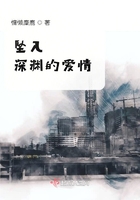This generation is constantly confronted by radical industrial changes, from which the community as a whole profits, but which must inevitably bring difficulty of adjustment and disaster to men of certain trades. In all fairness, these difficulties should be distributed and should not be allowed to fall completely upon the group of working- people whose labor is displaced as a result of the changes and who are obliged to learn anew their method of work and mode of life.
If the great industrial changes could be considered as belonging to the community as a whole and could be reasonably dealt with, the situation would then be difficult enough, but it is enormously complicated by the fact that society has become divided into camps in relation to the industrial system and that many times the factions break out into active hostility.
These two camps inevitably develop group morality -- the employers tending toward the legal and contractual development of morality, the workingmen toward the ( 125) sympathetic and human. Among our contemporaries, these two are typified by the employers associations and the trades unions.
It is always difficult to judge a contemporaneous movement with any degree of fairness, and it is perennially perplexing to distinguish what is merely adventitious and temporary from that which represents essential and permanent tendencies. This discrimination is made much more difficult when a movement exhibits various stages of development contemporaneously, when a dozen historic phases are going on at the same time. Yet every historic movement towards democracy, which constantly gathers to itself large bodies of raw recruits while the older groups are moving on, presents this peculiar difficulty. In the case of trades unions, certain groups are marked by lawlessness and disorder, others by most decorous business methods, and still others are fairly decadent in their desire for monopolistic control.
It is a long cry from the Chartists of 1839, burning hayricks, to John Burns of 1902, pleading in the House of Commons with well- reasoned eloquence for an extension of the workingmen's franchise. Nevertheless they are both manifestations of the same movement towards universal suffrage and show no greater difference than that between the Chica-( 126)-go teamsters, who were blocking commerce and almost barricading the streets in 1902 when at the same moment John Mitchell made his well- considered statement that he would rather lose the coal strike, with all that that loss implied, than gain it at the cost of violence.
Students of industrial history will point out the sequence and development of the political movement from the Chartist to the Independent Labor party.
They will tell us that the same desire burned in the hearts of the ignorant farmers which fired the distinguished parliamentarian, but they give no help to our bewildered minds when we would fain discover some order and sequence between the widely separated events of the contemporaneous labor movement.
We must first get down to the question, In what does "the inevitably destined rise of the men of labor" consist? What are we trying to solve in this "most hazardous problem of the age" ? Is progress in the labor movement to come, as we are told progress comes in the nonmoral world, by the blind, brute struggle of individual interests; or is it to come, as its earlier leaders believed, through the operation of the human will?
Is it a question of morals which must depend upon educators and apostles;or is it merely a conflict of opposing rights which may ( 127) legitimately use coercion ? The question, from the very nature of the case, is confusing; for, of necessity, the labor movement has perfectly legitimate economic and business aspects, which loom large and easily overshadow the ethical. We would all agree that only when men have education, a margin of leisure, and a decent home can they find room to develop the moral life. Before that, there are too many chances that it will be crushed out by ignorance, by grinding weariness, and by indecency. But the danger lies in the conviction that these advantages are to be secured by any means, moral or non-moral, and in holding them paramount to the inner life which they are supposed to nourish. The labor movement is confronted by that inevitable problem which confronts every movement and every individual. How far shall the compromise be made between the inner concept and the outer act? How may we concede what it is necessary to concede, without conceding all?
We constantly forget that, in the last analysis, the spiritual growth of one social group is conditioned by the reaction of other social groups upon it. We ignore the fact that the worship of success, so long dominant in America, has taught the majority of our citizens to count only accomplishment and to make little inquiry concerning ( 128) methods. Success has become the sole standard in regard to business enterprises and political parties, but it is evident that the public intends to call a halt before it is willing to apply the same standard to labor organizations.
It is clear that the present moment is one of unusual crisis -- that many of the trades unions of America have reached a transitional period, when they can no longer be mere propagandists, but are called upon to deal with concrete and difficult situations. When they were small and persecuted, they held to the faith and its implication of idealism. As they become larger and more powerful, they make terms with the life about them, and compromise as best they may with actual conditions.
The older unions, which have reached the second stage that may be described as that of business dealing, are constantly hampered and harassed by the actions of the younger unions which are still in the enthusiastic stage.















